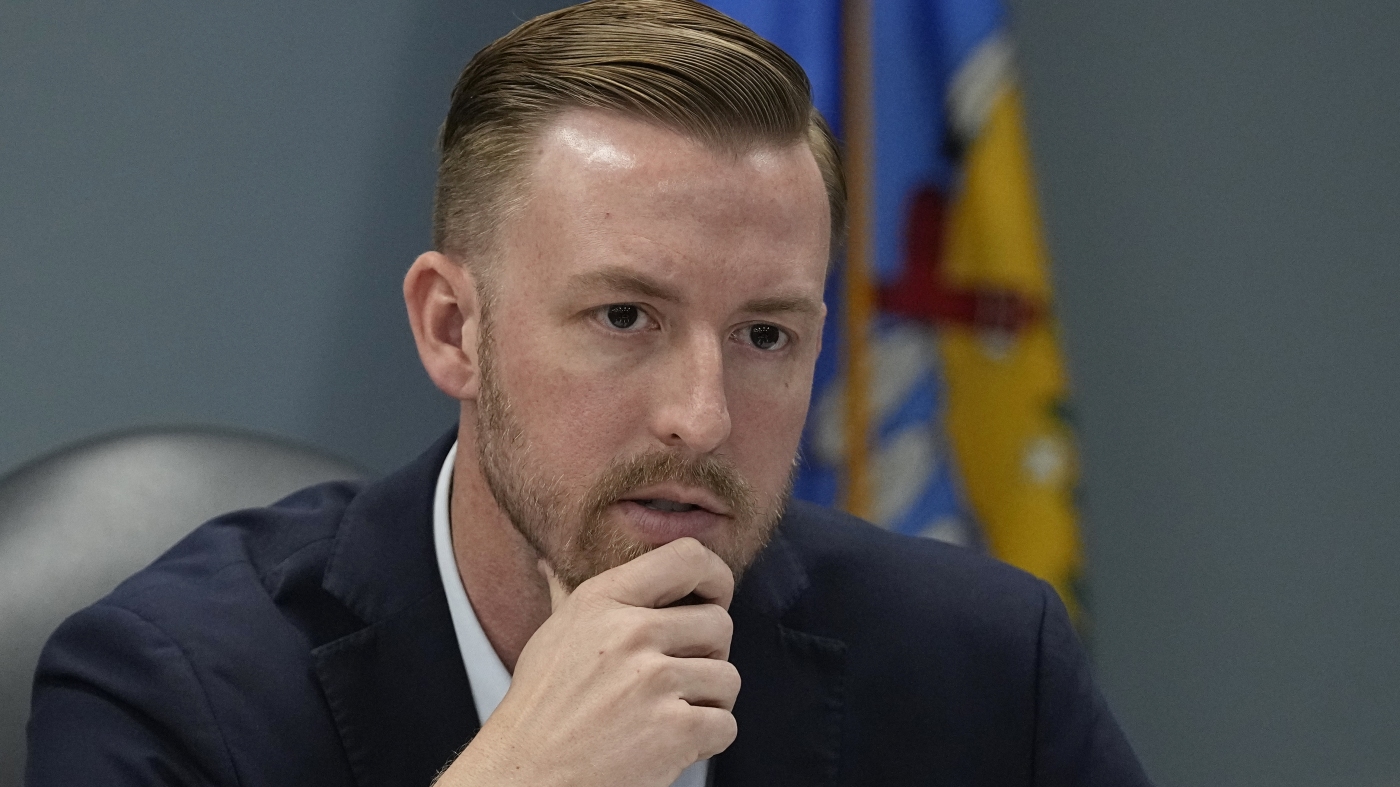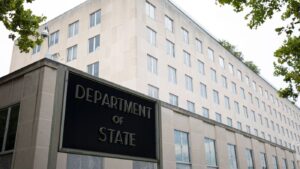The Controversial Shift in Oklahoma’s Education Standards
Oklahoma’s new education standards are stirring debate by bringing the 2020 election into the classroom. These guidelines, which have been criticized for pushing a disputed narrative, were approved despite opposition from some lawmakers and educators.

Oklahoma Superintendent of Public Instruction Ryan Walters has led the push for new educational guidelines that encourage students to examine discrepancies in the 2020 election results. Sue Ogrocki/AP
Key Elements of the New Standards
According to the new social studies standards for high school U.S. history, students are expected to examine alleged discrepancies in the 2020 election results. The standards call for analysis of various issues, including mail-in voting security and unexpected voting patterns. These were introduced by Ryan Walters, the state’s superintendent of public instruction, who aims to provide students with a comprehensive view of historical events.
Implementation and Legislative Pushback
The standards were quietly introduced in February and rapidly approved, despite concerns over the rushed process. Legislative efforts to return the standards to the board for further review were ultimately unsuccessful. In April, after a private discussion with Walters, the Oklahoma Legislature decided not to block the standards’ implementation.
House Speaker Kyle Hilbert defended the standards, highlighting the importance of fostering critical thinking about the 2020 election. “I think that students should be challenged to think critically about that particular election and what led to that high turnout as well as all the reforms that you saw states pass in the wake of that,” Hilbert stated.
Differing Views on Educational Impact
Critics argue that the standards do not truly promote critical thought. Anton Schulzki from the National Council for the Social Studies expressed concerns that students might interpret discrepancies as fact. Tammy Patrick from the Election Center warned that without context, references like “batch dumps” could lead to misunderstandings.
“That is not teaching critical thought,” Patrick emphasized. “Teaching critical thought is to frame it in such a way that instructs the students to find something that sounds odd to them, and then to dig deeper into, why is it the case that the thing that sounds strange to you, when you put it into context, is it still odd?”
Ongoing Challenges and Potential Legal Action
While the standards are set to be implemented in the upcoming school year, their future remains uncertain due to a lawsuit filed by a former Oklahoma attorney general. The suit challenges the approval process rather than the content of the standards.
Oklahoma City teacher Aaron Baker mentioned that if he were to teach these standards, he would incorporate fact-checking into his lessons. “I’ve been telling my students for four years — that the courts have declared over and over again, multiple times, that there was not widespread voter fraud in the 2020 election,” Baker said.
Despite the controversy, the standards remain a focal point of discussion among Oklahoma educators and lawmakers.






